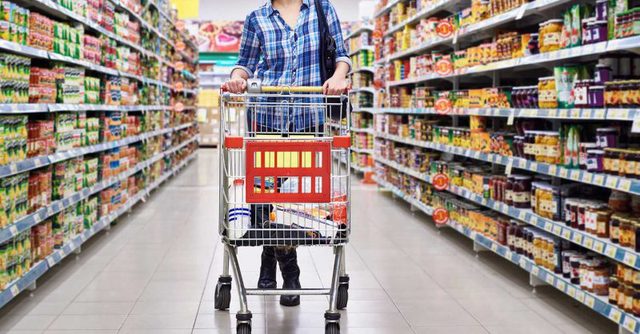Supermarket’s ‘psychological manipulation’ trick to change your buying decision
You may think that you will only buy what you need, when you need it. But, whether you’re shopping for food, clothing or convenience products, retailers are using the power of “psychological persuasion” to influence your decision, as well as cash out more. from your pocket.
Come to think of it, I bet there are many times you’ve walked into a grocery store only to find the layout of the store has been changed. The toilet rolls aren’t where you expected them to be, or you’re struggling to find a new place for the ketchup bottle.
Why do stores like to move things around all the time? There is a simple answer to this. Changing the location of items in the store means that customers will be exposed to more different items, as they wander around looking for what they need. This ruse can often dramatically increase unplanned spending, as we often get into the habit of adding more items to our baskets – often on impulse – while spending more time. in store.

When we go shopping, we face many invisible challenges from stores and supermarkets.
In fact, studies show that up to 50% of all groceries are sold on impulse – and more than 87% of shoppers make impulse purchases.
And while complex and influenced by many factors, such as a need for stimulation and a lack of self-control, it is well known that external shopping cues – such as a “buy one get one free” offer one”, discounts and in-store promotional displays – also play an important role.
An attractive offer can lead to a feeling of excitement, and the rush of a sale makes it more difficult to make a reasonable buying decision. We are easily swayed by our perception of the value of “saving” if we buy the item in the present, and ignore other considerations such as whether we really need it or not.
Humans, fundamentally, can hardly ignore the need for instant gratification.

We often have the habit of over-shopping.
Packaging is another technique that retailers use to stimulate purchases.
You’ve probably seen it quite often. Complementary products are packaged together as one product, for one price, often at a substantial discount. For example, consoles are often sold with two or three games included. Or grocery stores that have “meal deals” packages and even websites dedicated to a variety of bundle deals.
While these strategies can help increase retailers’ profits, they can also contribute to problems for their customers.
Obviously, impulsive purchases can affect the mental health of consumers. It inadvertently increases feelings of shame and guilt, which in turn can lead to anxiety, stress, and even depression. And it’s potentially even more serious, when impulsive purchases lead to overbuying, especially if people spend money they don’t have.
But, there are also some positives.
Shopping online has been found to increase dopamine, as it is released into our brains. So, while waiting for the goods to arrive, we tend to feel more excited than buying things in the store.

Online shopping can be more enjoyable than buying from stores.
If this pleasurable sensation is well managed, it does no harm. But, sadly, it doesn’t always stop there. That fleeting feeling of pleasure can sometimes lead to a shopping addiction. This can happen when a consumer wants to continuously experience a pleasant sensation from the “dopamine effect”, so they tend to buy more and more items until things get out of hand. .
On the other hand, shopping can help restore one’s sense of control.
When we feel unhappy or anxious, we tend to think that things are out of our control. But when shopping allows us to choose – which store to go to or whether we like an item – it can provide a sense of personal control and reduce anxiety. So it can be a more meaningful activity than many people think.
While retailers may not want to reduce our purchases, if they do, they can help make a more positive impact on purchasing decisions.
For example, there is an urgent need to combat obesity in most countries of the world. That’s why the UK government has decided to restrict the advertising of unhealthy foods – those high in free sugar, salt and saturated fat – in stores from October 2022.
It’s a strategy that can be helpful. Eliminating tempting treats at the checkout can help reduce the amount of sugary foods purchased, and in some cases by as much as 76%.

The checkout area is a key location to attract customers to shop.
And a recent study shows that by increasing the availability and advertising of healthier food options, as well as making them more visible through smart positioning and use of signage, it is possible to help shoppers make better choices.
Ultimately, the key to resisting buying goods we don’t want or need lies with ourselves. Need to be aware of what we are doing while shopping. A good personal strategy is to try to browse e-commerce sites less, or shop less. Instead, use a shopping list and try to buy only what is on it.
But sometimes, be kind and forgiving to yourself if you cross the line. Because it’s easier said than done.
Refer theconversation
at Blogtuan.info – Source: cafebiz.vn – Read the original article here



